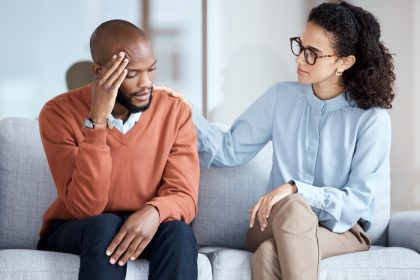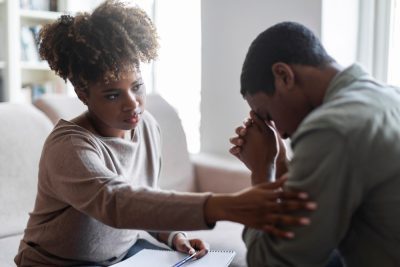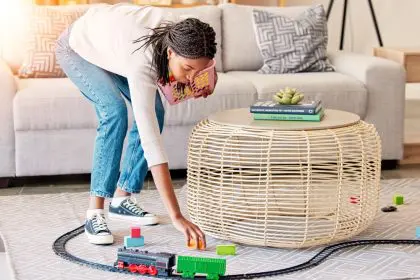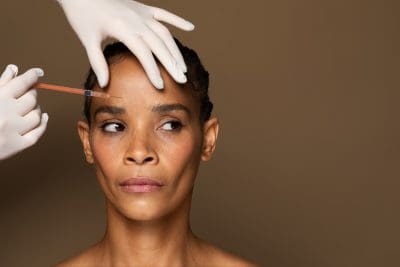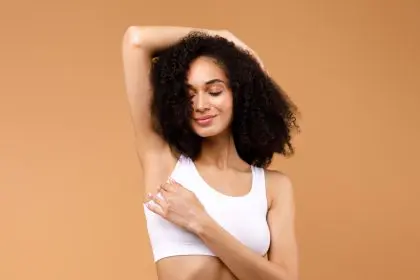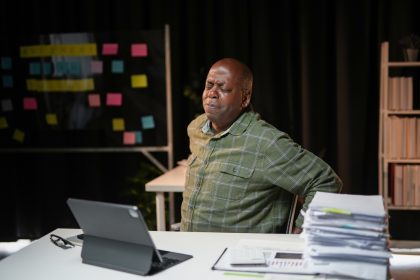Dr. Chakika Williams is redefining what comprehensive healthcare looks like in the modern era. As a dual board-certified family and psychiatric mental health nurse practitioner, she has created something unprecedented in the wellness industry through her SkyRose Rejuvenation Clinic & Spa and SkyRose RCS Medical Aesthetics Academy.
Her innovative approach goes far beyond traditional aesthetic treatments, recognizing that true transformation requires addressing both internal and external well-being. Through her groundbreaking Injector Confidence Gap Method, Dr. Williams has trained over 4,000 medical professionals while simultaneously breaking down barriers for Black and Brown providers in an industry where representation has historically been limited.
As the founder of an award-winning medical spa recognized as Southland’s Best in the Region for three consecutive years, Dr. Williams continues to push boundaries by integrating primary care, mental health services and aesthetic treatments under one roof. Her mission extends beyond individual patient care to creating generational wealth and legacy opportunities for underrepresented communities in healthcare.
What inspired you to combine mental health and aesthetics into one transformative care model?
What we deal with internally cannot be treated by what I do on the topical side. So you come and get your facials, you come and get your anti-aging treatments, your IV hydration, but you may be dealing with something a little bit more deeper than the superficial layer. I wanted to set myself apart by being that one-stop shop for all things health, wellness and beauty. Because I am double boarded, I am a family nurse practitioner, so I take care of you on the primary care side. That is your blood pressure. That is your diabetes. That is your cholesterol, asthma, all of that.
Then also I am a psych mental health nurse practitioner, so I’m able to take care of you on that mental side, too. In the event I ever come across a client who I feel may be battling something that they may not speak of in our consultation, I’m able to assess on a deeper level and convert that treatment from an aesthetic treatment to now the mental wellness treatment, because I feel it’s deeper. Most of the time our clients come to us and we are therapists, indirectly, but in this case I’m actually licensed to take care of that person on that level. So they’re able to get their primary care, their mental health care as well as their wellness, all under one roof from the SkyRose.
How does your Injector Confidence Gap Method help close barriers for aspiring medical professionals?
In the aesthetic industry, we’re not represented, and when I say we, I’m talking about my Black and Brown providers. We’re undervalued, and we’re typically overlooked in this industry. Being able to provide a platform where I can train and lead up more injectors that look like me, it’s opening the doors for other black and brown providers to see someone else doing the exact same thing that they want to do or aspire to do, and know that they can also do it too, but not running into some walls where we have our gatekeepers, or we have our breadcrumbers.
My academy strictly is to pretty much give them all the resources and the tools that they need to excel, not only as an injector, but as a business owner, if that’s what they’re aiming to be as well. We’ve trained, to date, probably over 4,000 medical professionals, and I’ve helped probably 10% of that open their own med spa. Currently, I am mentoring about eight students that are opening their spas across pretty much the United States. I have three students that are out of state, Arizona based, Georgia based and Virginia, and then I have five that are here, and we work remotely. We meet on a weekly basis, and I’m guiding them from beginning up until their doors [are] opening and [they’re] opening up their own aesthetic wellness business.
In what ways has cultural understanding shaped your approach to care and client connection?
Most of the time I try to connect with my clients from experience. I started the spa because of things that I’ve experienced coming up when it came to beauty in general as a young girl. I always pour into my community with education. A lot of the services we offer are not talked about, it’s not easily accessible in some of the communities. Having that educational piece, holding free workshops, educational workshops, and training them and educating them on that cultural aspect so they know that these services are also [available for] them helps a lot.
One of the things you hear all the time is Black don’t crack. I have a lot of clients that are opposed to using SPF, which is sunscreen, because we think we don’t crack. I have a joke, I say, we may not crack, but we fold and we bend, so you still want to use that. It’s about educating them and making sure that I stay current on that cultural level. I’m always finding myself taking continuing education courses on how to treat skin of color.
I actually just did a huge speaking engagement in Vegas, one of our aesthetic conferences. I was a speaker, and I spoke about diversity in aesthetics and how to tailor your treatment plans to women of color. We don’t have a lot of people who are very well educated on how to take care of skin of color, and I’m not just talking African Americans. This is for all people of color, certain treatments we can’t get, certain things we have to be educated on and know how to treat those clients. I make sure that I always intertwine the cultural part of our history into our treatment plans, as well.
What are some of the other misconceptions about aesthetic medicine in the Black community?
That we don’t do Botox, that we don’t need it, and that falls under that whole umbrella of we don’t crack. Our collagen is thicker, so we don’t get fine lines and wrinkles as early or as easily as someone else, but because of that, we tend to lose a lot of volume in our face, which causes our folds. We do get Botox. 80% of my clientele is African American, and they’re coming in and they’re getting their Botox treatment. They’re getting their filler treatments. They’re getting their facial maintenance. It’s all about educating, because we don’t know what we don’t know.
My platform is to make sure that we are putting out the information that our clients need to know for them to book the appointment and understand why they’re booking it, and don’t feel like they are not allowed to come and get these treatments, because society has said that it’s only for a certain nationality; we all get it. We get a lot of young girls now who want lip filler. We do it, but I do have a certain ethic behind it. I’m not [going to] do it if it’s [going to] make you look unnatural; we pride ourselves on natural results and natural rebalancing. If you’re asking for something that is against my values, then I typically turn that client away.
How do you maintain your own mental wellness while pouring into so many others?
Being intentional with boundaries, being intentional with the word no, and being okay with saying no. So what I do; Wednesday and Mondays are my admin [days]. Monday is my true admin day, and Wednesday is my personal day, and I’ve been practicing this personal day, probably since summer of last year, where I don’t do anything on that day, if it’s not benefiting my self-care, my well-being. If I take a call, it’s because I wanted to; otherwise it’s nail appointments, hair appointments, massages, sitting at home, not doing anything but just pouring into me. I’ve been really strategic about that day, and not allowing it to be filled with work unless I just truly have to overlap.
What advice would you give to Black women entering the medical aesthetic space?
First, mindset. You got to work on your mindset. This is a cutthroat industry, and depending on the area, this location, as far as state that you’re in, it may not be as friendly as you’re hoping it to be, or easy to break into. So you have [to] work on your mindset to know that this journey of entrepreneurship is not easy. It is not for the weak. I have, call it a perfect week schedule, and so on that perfect week schedule, it literally is broken down into 45-minute increments. My personal development time is pretty much 9-10 o’clock. So that’s reading a book, listening to audio or YouTube; I listen to Eric Thomas basically every morning. Those are my times that I’m pouring into me, and then I do personal development again at nighttime before I go to bed. The other thing is a coach. You must have a mentor. We cannot do this by ourselves. When I first started my first two years of business, I didn’t have an aesthetic coach, someone that can really show me okay, you don’t want to do this, you may want to try that.
Once I got into the aesthetic world, it was a whole different world. I’m trying to figure this out and falling on my face and getting up and dusting off, but I kept going. Then two years in, I found my aesthetic coach. I highly recommend getting a coach or mentor on this journey. Lastly, you need community. You have to get around like-minded people. People that have been there, people that you can go to with questions that can pour into you that can guide you as well. So those are my top three things that I tell people looking to get into, not just our industry, but any industry; mindset, coach and community.
How do you see the future of culturally competent care evolving in wellness and aesthetics?
I feel like we have a lot of room for growth. I feel like we have to be intentional about making sure that the things that we are doing are basically being culturally competent and inclusive. It’s [going to get] better because you have people like myself that are opening the doors for other people that look like myself to actually break into an industry that wasn’t technically made for us. The more that we are putting ourselves in these positions, the more that we will be accepted in whatever industry that we step our foot into.
How can people connect with you?
You can connect with me on Instagram at SkyRose RCS. It is the same on Facebook, Skyrose RCS, which is Skyrose Rejuvenation Clinic and Spa. Our website is drchakikawilliams.com.



